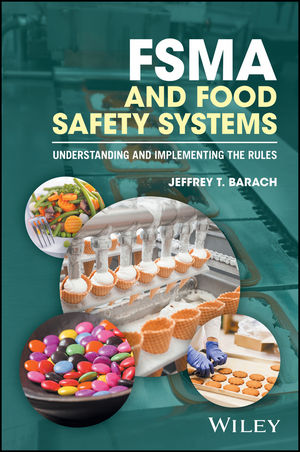Food Safety in a “Foodie” Culture: Proactively Protecting the Foodservice Supply Chain

Whether it’s celebrating a milestone birthday or taking a casual cruise through the drive-thru, Americans prefer dining out over cooking a meal at home for the first time in history. According to U.S. Census data, Americans spent more at bars and restaurants ($54.8 billion) last year than on groceries ($52.5 billion). Moreover, consumers have higher expectations about their dining experiences. They have come to expect fresh and diversified offerings creating a complex foodservice supply chain to deliver on the promise of more memorable experiences. Just think about how many self-proclaimed “foodies” share millions of food photos on Instagram each day!
As this trend grows, one thing is for sure. American diners clearly expect food to be safe and place their trust in foodservice operators to provide a quality meal. However, foodborne illness outbreaks still happen. According to the U.S. Centers for Disease Control and Prevention (CDC), about 48 million people each year get sick from contaminated food in the United States alone—60 percent result from restaurant visits.
While there are many factors that lead to a foodborne illness outbreak (cross-contamination of food, employee illnesses), many foodservice companies are focusing their efforts on enhanced food traceability to increase confidence in the food being sold to loyal guests. To become more vigilant about food safety, the foodservice industry needs visibility and continuity of information across the supply chain. While many foodservice industry leaders recognize this as a priority, there is still much work to be done to ensure food can be tracked and traced from farm to table. Let’s explore how traceability works and what the industry is doing to ensure safety in today’s rapidly changing marketplace.
How Traceability Works
Traceability enables foodservice trading partners to track and trace product throughout the supply chain. It involves each trading partner collecting and maintaining product information that supports, at the very least, “one up/one down” visibility of the product’s movement through the distribution channel. End-to-end traceability is achieved as the net result of two complementary business processes: internal traceability and external traceability. When trading partners effectively implement internal and external traceability processes, each traceability partner is able to identify the direct source and direct recipient of traceable items. Both processes are needed to effectively trace product throughout the supply chain.
Foodservice companies are adopting a common global language—GS1 Standards—which serve as the foundation to share and understand information. The backbone of this system is the Global Trade Item Number® (or GTIN®). A GTIN uniquely identifies a trade item and can be encoded into a barcode to track individual items as they move through the supply chain. Foodservice operators also use Global Location Numbers (GLNs) to help identify essential locations within a supply chain. Use of both of these standards provide a solid foundation toward end-to-end traceability—establishing a uniform way to identify both the “what” and the “where” within the supply chain. Using proprietary identification that does not leverage the interoperability of GS1 Standards can mean inconsistent data exchanges between trading partners and enhanced risk to the supply chain.
A New Step-by-Step Guideline
A new guideline was published by a special traceability workgroup composed of suppliers, distributors and foodservice operators who, learning from the impact of past years’ major foodborne illness outbreaks, decided it was time for the foodservice industry to enhance its traceability practices. The workgroup collaborated to broaden their collective understanding of GS1 Standards and how they support food safety. The guideline is meant to serve as an industry blueprint for any trading partner looking to extend their traceability efforts.
The guideline focuses on the implementation of case-level traceability processes leveraging special barcodes called GS1-128 barcodes, which are used to identify and track cases of product in the foodservice supply chain. These barcodes are effective for capturing important traceability information such as product data, production dates and batch/lot or serial numbers. By collecting and maintaining this information, trading partners can support visibility of the product’s movement through the distribution channel and minimize the impact of product withdrawals by removing affected product faster.
Beyond Food Safety Benefits
There are additional benefits to traceability beyond enhancing food safety. Traceability programs help deliver information transparency, particularly sourcing information as “locally grown” and animal welfare information as these are increasingly sought by those dining out. A recent study from the Center for Food Integrity showed that consumers want transparency around a company’s business practices just as much as food product labeling.
Also, the collaborative work done to enhance traceability has the added benefit of streamlining operations, leading to significant internal cost savings for all trading partners. This is important as the foodservice industry explores innovations such as expanded delivery options and the use of restaurant apps. An Accenture study found 71 percent of frequent quick service customers said that they would use delivery options, and more than 60 percent of consumers have downloaded at least one quick service restaurant’s app, according to research from the National Restaurant Association.
Ultimately, forward-thinking foodservice companies recognize that food safety should be the furthest thing from consumers’ minds while they snap away photos of the latest chef’s special at their favorite lunch spot, or pose for a selfie with a fruit-garnished cocktail at Happy Hour. Through collaboration on traceability, the industry is building a solid foundation to enable foodservice companies to focus on other innovations to enhance the overall experience.
Angela Fernandez is the vice president of retail grocery and foodservice at GS1 US and is responsible for leading the industry engagement strategy to drive broader adoption of GS1 Standards and solutions for the food industry. She is an authority on the food supply chain and food traceability, including minimizing the impact of food recalls via GS1 Standards.
Looking for a reprint of this article?
From high-res PDFs to custom plaques, order your copy today!








